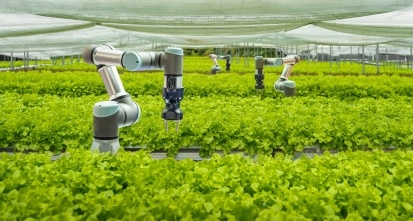Gain new perspectives for faster progress directly to your inbox.

Chemistry provides many of today’s essentials and, while fundamental to driving research, innovation, and economic growth, represents a major contributor to climate change.
Hazardous substances, greenhouse gas emissions, and the lack of proper waste management all originate from inadequate chemical practices, which require complete reformation to meet new sustainability goals.
Recent years have seen an increased interest in digital technologies and powerful cognitive tools able to accelerate sustainable solutions. From better data management to improved resource use, digital transformation can empower industries by rethinking and optimizing their chemical processes, reducing their environmental impact. However, predictions for the next decade give businesses undertaking digital transformation only a 30% chance of success.
An ill-advised digitalization strategy can quickly transform a smart investment into a disappointment. In contrast, a deep understanding of digital technologies, their range of possibilities, and partners for strategic implementation can unravel new opportunities and help companies achieve their sustainability objectives while significantly increasing their competitiveness in the market.
Digitalization and knowledge management: Building a solid data foundation
From early-stage R&D to post-market surveillance, the chemical industry continuously generates and collects a considerable amount of data. However, the lack of harmonization within and between organizations leads to a loss of valuable information and wasted resources. This unstructured or “dark data" accounts for an estimated 55% of all stored data, significantly slowing research and innovation in the field.
Digitalization can structure your data and laboratory workflow while reducing your environmental footprint. With the paper industry accounting for more than 40% of globally traded wood, a digital knowledge management system can prevent data loss and minimize deforestation.
A decade ago, the Nature article, “Scientists losing data at a rapid rate”, reported that about 80% of scientific data becomes unavailable after 20 years. Thankfully, the rise of digital solutions offers researchers opportunities to dust off their legacy scientific data and transform it into a new breeding ground for data-driven innovation.
Download this case study to learn how a large health-tech organization made its internal R&D data more accessible.
Identifying innovation opportunities: Optimizing chemical processes with AI-enabled solutions
Today, more than 80% of chemical companies declare that sustainability has become equally as important as revenue growth. Despite significant practice modifications to include more sustainable options, many chemical workflows still rely on solvents and fossil fuels that generate hazardous waste and greenhouse gases. Replacing each process with greener alternatives is a lengthy road requiring substantial time and financial investment. Thanks to the rise of digitalization in chemistry, cognitive tools now offer a shortcut to sustainability and innovation with an increased return on investment (ROI).
Artificial intelligence (AI)-enabled search and analytics can effectively pinpoint information relevant to your scope and objectives. By directly screening your internal database, predictive models can generate precise recommendations for better chemical formulations, sustainable manufacturing workflows, and enhanced productivity. In 2022, two-thirds of companies reported actively developing AI strategies to address their sustainability goals.
As AI-powered projects increase, organizations need solid data foundations and a robust training strategy to ensure AI accuracy. A lack of data diversity or low-quality data can cause performance variations and model drift, impacting your AI predictions and leading to poor investments. Through enriched datasets and curated training sets, you can validate your predictive AI and machine learning models to identify your next breakthrough.
Download this case study to learn how high-quality training data and machine learning support new chemistry.
Transitioning to sustainable chemistry: Meeting ever-changing regulatory demands
From formulation to waste management, a chemical’s life cycle is subject to strict guidelines, often unharmonized between states and countries. In addition to the broad regulatory landscape, guidelines frequently undergo reviews and updates to align with changing scientific knowledge, technological advancements, or evolving societal expectations.
Due to their complex and evolving nature, complying with sustainability-driven regulatory demands represents a major challenge for chemical organizations. To navigate ever-changing and scattered frameworks, many chemical companies invest in dedicated regulatory affairs departments despite the financial burden. Well-implemented internal processes can significantly mitigate costs and risks while ensuring compliance with shifting environmental policies.
Regulatory compliance typically involves extensive documentation, including comprehensive chemical records, detailed manufacturing processes, and up-to-date safety data sheets. Gathering these requirements involves browsing vast datasets from diverse departments with different methodologies. Demanding and time-consuming, this process diverts focus away from research.
Establishing a comprehensive and accurate audit trail with standardized data management systems can help. By capturing and tracking changes made to chemical documentation through an easily searchable database, you can keep your knowledge structured, accessible, and updated as regulatory standards and environmental policies evolve.
Digital transformation of the chemical industry: Cornerstone for a green future
The growing awareness of sustainability leads the chemical industry to rethink its processes, seeking eco-friendly alternatives to minimize their environmental impact and conserve resources.
Through optimized data management systems, validated AI models, and multifunctional algorithms, digital transformation is a business-changing process that provides chemical organizations with significant opportunities to adopt innovative and sustainable practices in their daily operations.













